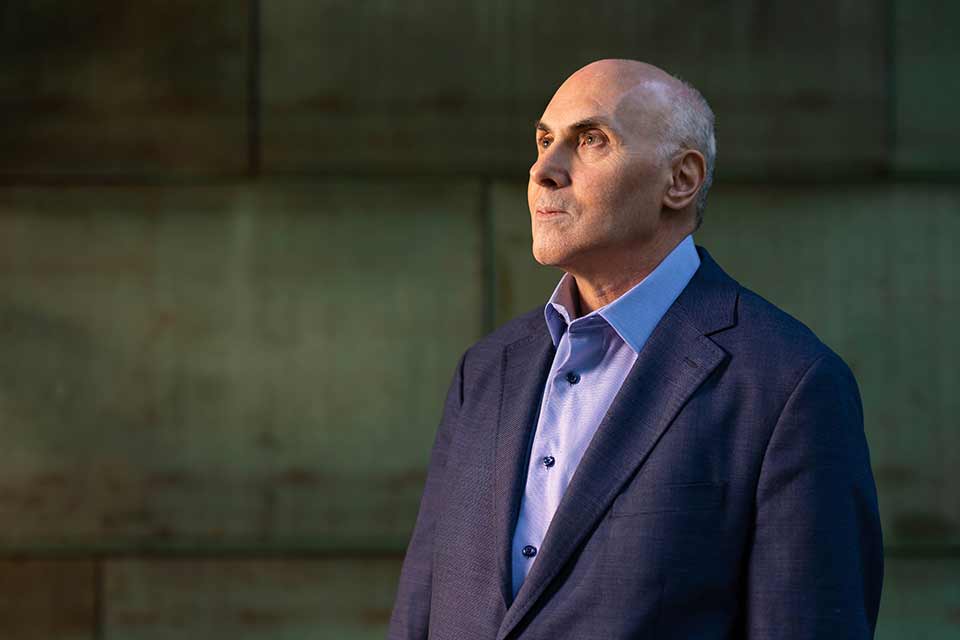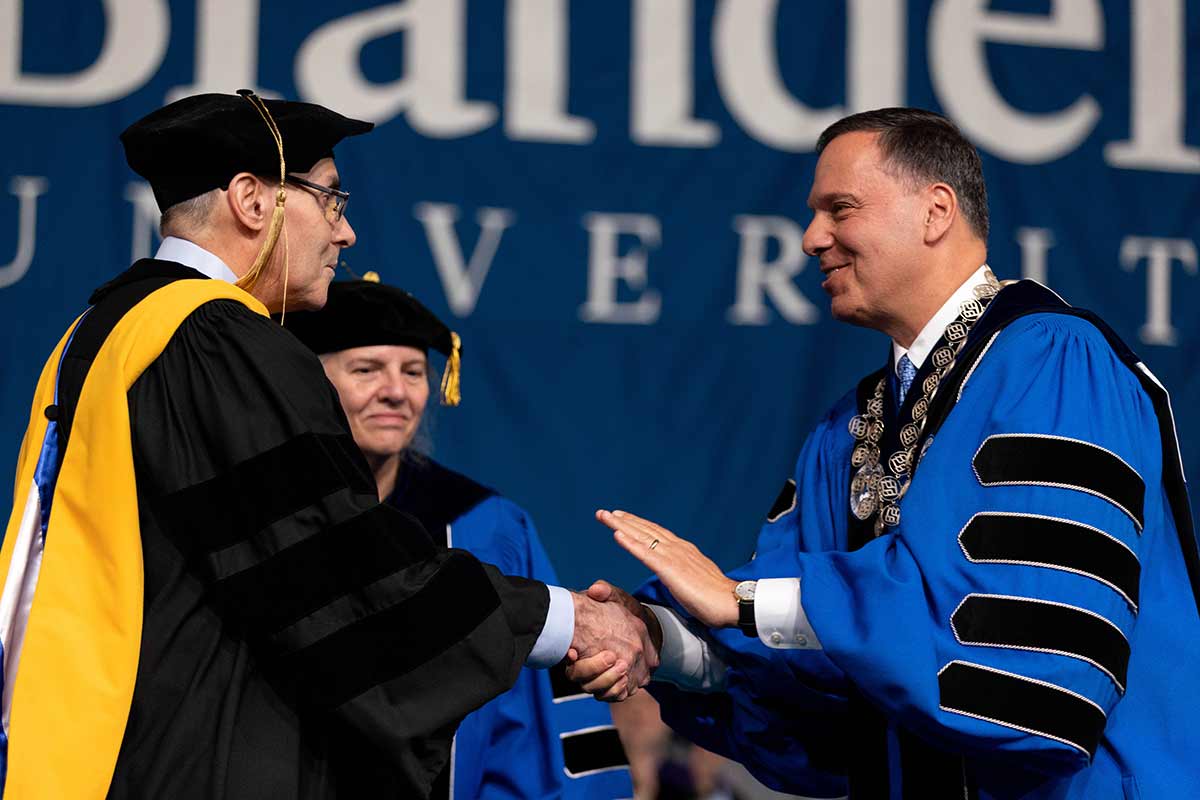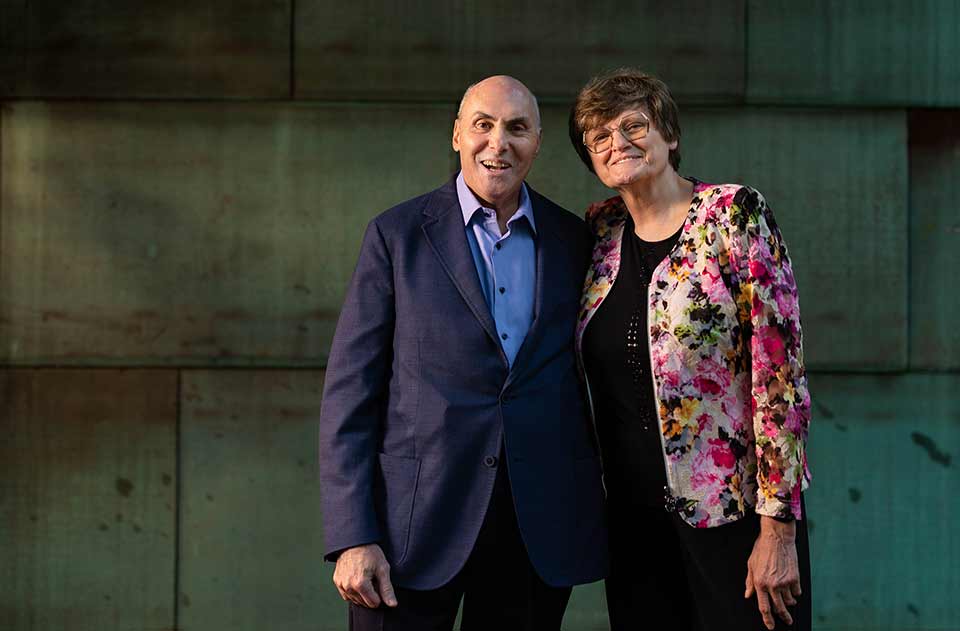Drew Weissman ’81, GSAS MA’81, P’15, H’23, awarded Nobel Prize
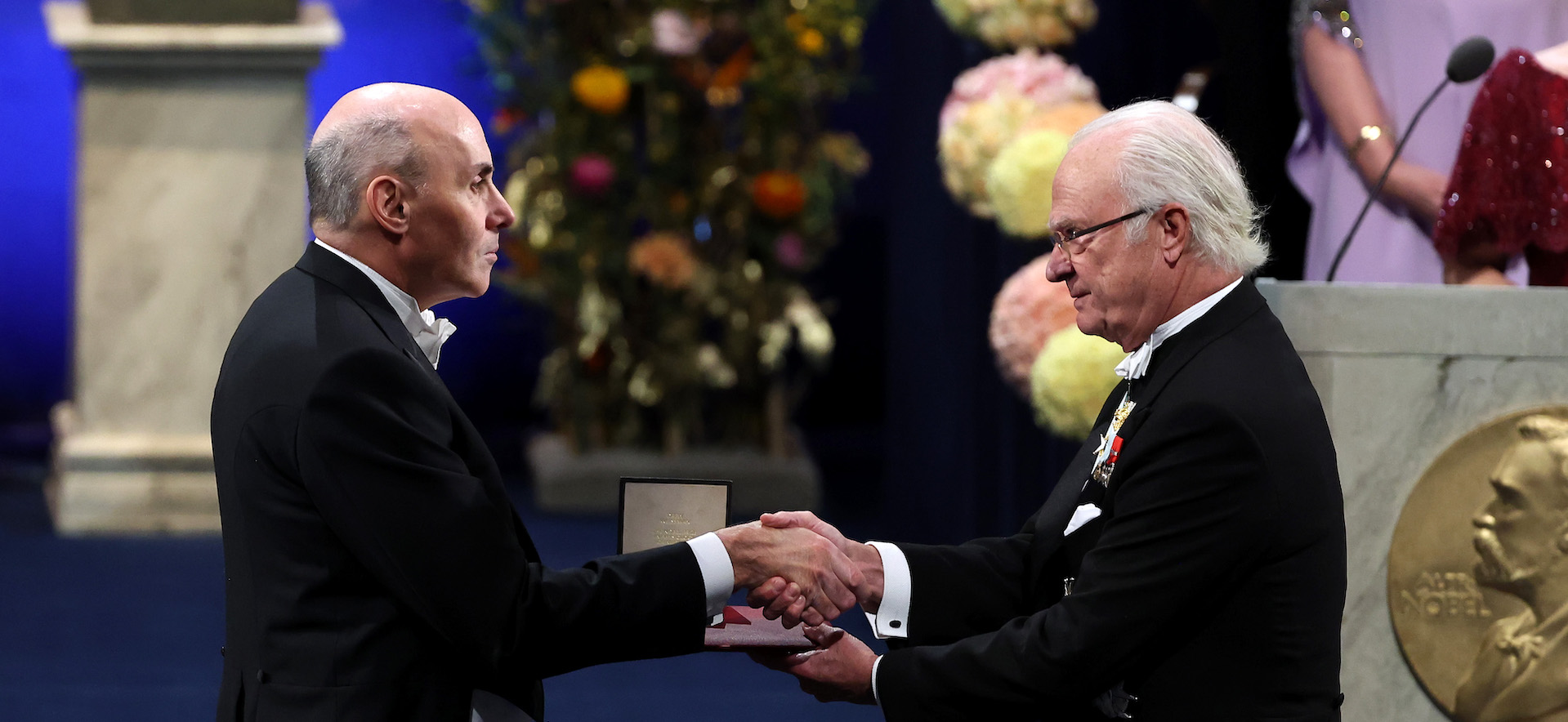
Photo Credit: Photo by Jonathan Nackstrand/AFP via Getty Images
By Jarret Bencks
December 11, 2023
In an elegant ceremony Dec. 10 in Stockholm, Sweden, immunologist Drew Weissman ’81, GSAS MA’81, P’15, H’23, and his research partner Katalin Karikó, H’23, received the Nobel Prize in Medicine for their research that led to the development of the COVID-19 vaccine.
Through years of painstaking research, Weissman and Karikó found that by engineering a modified version of messenger RNA — which transports instructions to cells regarding the production of proteins — and then developing a system to deliver it, they could trick the immune system into thinking the body is infected with a virus and produce antibodies to create at least partial immunity.
Along with this year's Nobel Prize winners in physics, chemistry, and literature, Weissman and Karikó entered Stockholm Concert Hall to music by Amadeus Mozart performed by the Royal Stockholm Philharmonic Orchestra. They each took their seats on stage, Weissman in a blacktail tuxedo and Karikó in a glittering black evening dress.
They were introduced in a speech by Professor Gunilla Karlsson Hedestam, a member of the Nobel Assembly at Karolinska Institutet, and chair of the Nobel Committee for Physiology or Medicine.
Messenger RNA was first defined by François Jacob and Jacques Monod in 1961, a discovery that was awarded a Nobel Prize in Physiology or Medicine in 1965, Hedestam said. Although the identity and function of mRNA has been known for over 60 years, and mRNA is routinely used in most modern medical research laboratories, the term has remained largely obscure outside the scientific community — until recently, she said.
“Terms like mRNA, virus variants, antibodies, B cells and T cells are now well-known to most people, and surveys demonstrate that the public’s trust in scientific research increased during the pandemic. The basic research performed by the 2023 laureates no doubt contributed to this,” Hedestam said.“This year’s prize is very much in the spirit of Alfred Nobel’s will: a contribution to the greatest benefit of humankind.”
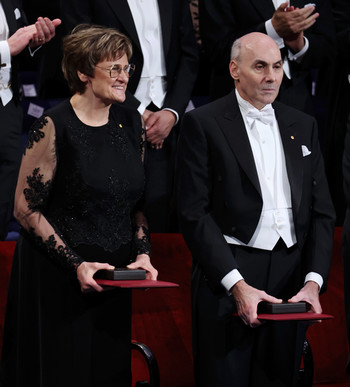 Surrounded by elaborate flower arrangements, and in front of a bust of Alfred Nobel, first Weissman and then Karikó stepped forward to receive the prize from the King of Sweden, Carl XVI Gustaf. The opulent concert hall filled with warm applause. Each Nobel prize winner receives a diploma featuring a unique work of art, a share of 11 million Swedish Krona (equal to about $1 million), and the iconic Nobel Prize medal.
Surrounded by elaborate flower arrangements, and in front of a bust of Alfred Nobel, first Weissman and then Karikó stepped forward to receive the prize from the King of Sweden, Carl XVI Gustaf. The opulent concert hall filled with warm applause. Each Nobel prize winner receives a diploma featuring a unique work of art, a share of 11 million Swedish Krona (equal to about $1 million), and the iconic Nobel Prize medal.
The ceremony, which commenced at 4 p.m. in Stockholm, was followed by an equally dazzling banquet reception in Stockholm City Hall. Sunday’s events concluded a weeklong celebration of the prizes in Sweden, including a roundtable discussion among the prizewinners, panels on a variety of topics in science and society, lectures delivered by each winner, and a concert.
In brief remarks at the banquet, Karikó thanked the Nobel Foundation on behalf of herself and Weissman.
“It is a great privilege for us to belong to this most outstanding group of scientists who have received this award,” Karikó said. “Importantly to us, this award also recognizes the fellow scientists who worked diligently over decades to help build the foundation for our work that led to the development of COVID-19 mRNA vaccines.”
Weissman graduated from Brandeis with bachelor’s and master’s degrees and went on to earn his PhD and MD from Boston University. After graduate school, Weissman completed a residency at Beth Israel Deaconess Medical Center and a fellowship at the National Institutes of Health (NIH), where he worked on HIV research under the supervision of Dr. Anthony Fauci, director of the National Institute of Allergy and Infectious Diseases and former chief medical adviser to President Joe Biden.
Since 1997, he has been a professor of medicine at the Perelman School of Medicine at the University of Pennsylvania, where he met Karikó, a biochemist, and their partnership began.
They published a landmark paper in the journal Immunity in 2005, but it was not until 2020 that their work became globally renowned as the groundwork for the development of the BioNTech/Pfizer and Moderna COVID-19 vaccines.
A student of biochemistry and enzymology during his time on campus, Weissman delivered the Commencement address at Brandeis in 2023.
“It is here that I honed my critical thinking skills, starting as a freshman in Shapiro Hall, and nurtured my passion for scientific exploration in Professor Gerry Fasman's biochemistry lab,” he said at the time. “I learned the value of collaboration and open-mindedness while being an active student, campus member, and part-time activist.”
Weissman is the second Brandeis alumni to win the Nobel Prize. Roderick McKinnon '78, H'05, was awarded the prize in chemistry in 2003. Brandeis professor Michael Rosbash and professor emeritus Jeffrey Hall were also awarded the Nobel Prize in Physiology or Medicine in 2017.
